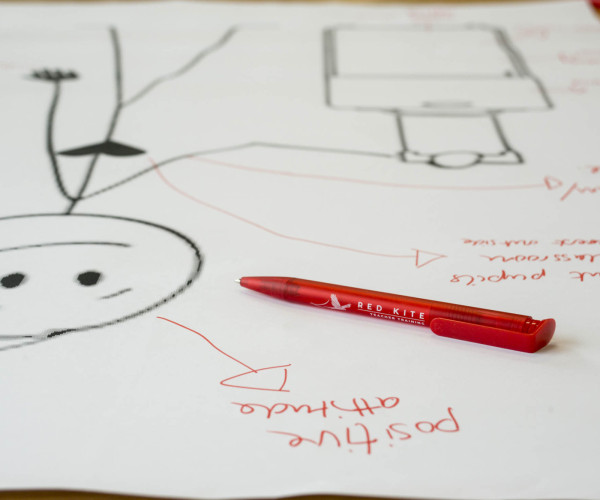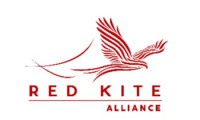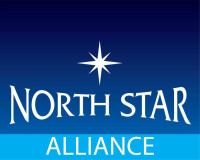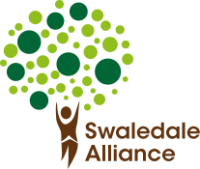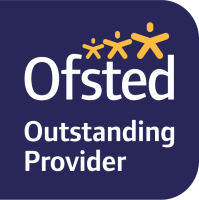Equality Statement
Vision, Values and Principles
Red Kite Teacher Training and our legal entity Red Kite Learning Trust is committed to advancing equality of opportunity, fostering good relations as well as eliminating discrimination, harassment and victimisation. We oppose all forms of unlawful or unfair discrimination, whether because of age, ethnicity, disability, gender, religion and belief, and sexual identity or any other condition or requirement which places a person at disadvantage and cannot be justified. The impact of all policies, practices and day-to-day activities are considered to ensure that no member of the community is discriminated against or put at a disadvantage. This statement is underpinned by the Equalities Act 2010.
We aim to provide training and a professional culture which recognises and celebrates diversity; we aim to create an inclusive environment that enables individuals to fulfil their potential by removing any barriers to their achievement.
We work with a wide range of schools whose contexts are rich and diverse. We aim to ensure that our trainees are able to experience as wide a range of contexts as possible. The Red Kite Learning Trust vision is for every school in the Trust to be able to offer a truly outstanding education for every child within a school that cares for their academic, social and emotional development. We believe that the students within our trust and partner schools should see themselves and their communities reflected in their teachers, and we aim to provide excellent role models for children and young people across our partnership. We also aim to reflect diversity within our teacher training curriculum. We expect all of our partners to recognise the same values as our trust.
The shared Red Kite Learning Trust values are:
- EQUALITY OF OPPORTUNITY for all the young people and staff in our schools.
- COLLECTIVE MORAL PURPOSE through which we will help others and be professionally generous in all aspects of our work.
- INTEGRITY, OPENNESS, AND TRUST that help forge strong relationships between partners.
- FAIRNESS TO EACH OTHER as partners and to our associates and the individuals we work with.
- TRANSPARENCY AND PROBITY, particularly in financial matters and in accordance with the highest expectations of standards in public life (the Nolan principles).
- INDIVIDUAL AUTONOMY that respects the unique nature of each school and its place within its own community.
- SUPPORT FOR OTHERS, offering help to other schools / academies and young people beyond our own where we have the capacity to do so.
- COLLABORATION with others, including local authorities, other education providers and charitable bodies, to promote the success, welfare and safety of our young people.
- GOOD GOVERNANCE that secures our aims and values within a robust accountability framework.
As well as our vision and values we are guided by principles which allow us to fulfil our legal duties. These are:
Principle 1: All members of the partnership are of equal value
We see all staff, trainees and potential trainees, as of equal value:
- Whether or not they are disabled
- Whatever their ethnicity, culture, national origin or national status
- Whatever their gender and gender identity
- Whatever their religious or non-religious affiliation or faith background
- Whatever their sexual identity
Principle 2: We recognise and respect difference
Treating people equally does not necessarily involve treating them all the same. Our policies, procedures and activities must not discriminate but must nevertheless take account of difference of life experience, outlook and background and in the kinds of barrier and disadvantage which people may face in relation to:
- Disability, so that reasonable adjustments are made
- Ethnicity, so that different cultural backgrounds and experiences are recognised
- Gender, so that the different needs and experiences of girls and boys, and women and men, are recognised
- Religion, belief or faith background
- Sexual identity
Principle 3: We foster positive attitudes and relationships, and a shared sense of cohesion and belonging
We intend that our policies, procedures and activities should promote:
- Positive attitudes towards disabled people, good relations between disabled and non-disabled people, and an absence of harassment of disabled people.
- Positive interaction, good relations and dialogue between groups and communities different from each other in terms of ethnicity, culture, religious affiliation, national origin or national status, and an absence of prejudice-related bullying and incidents.
- Mutual respect and good relations between boys and girls, and women and men, and an absence of sexual and homophobic harassment.
Principle 4: We observe good equalities practice in trainee recruitment
We ensure that policies and procedures should benefit all trainees and potential trainees, for example in recruitment and promotion:
- Whatever their age
- Whether or not they are disabled
- Whatever their ethnicity, culture, religious affiliation, national origin or national status
- Whatever their gender and sexual identity, and with full respect for legal rights relating to pregnancy and maternity
Principle 5: We aim to reduce and remove inequalities and barriers that already exist
In addition to avoiding or minimising possible negative impacts of our policies we take opportunities to maximise positive impacts by reducing and removing inequalities and barriers that may already exist between:
- Disabled and non-disabled people
- People of different ethnic, cultural and religious backgrounds
- Girls and boys, women and men
Principle 6: We consult and involve widely
We engage with a range of groups and individuals to ensure that those who are affected by a policy or activity are consulted and involved in the design of new policies, and in the review of existing ones.
Principle 7: Society as a whole should benefit
We intend that our policies and activities should benefit society as a whole, both locally and nationally, by fostering greater social cohesion, and greater participation in public life of:
- Disabled people as well as non-disabled
- People of a wide range of ethnic, cultural and religious backgrounds
- Both women and men and both boys and girls
- People of all sexual orientation
Principle 8: We base our policies and practices on sound evidence
We maintain and publish quantitative and qualitative information which shows our compliance with the public sector equality duty (PSED) and the basis of which we decide on specific and measurable objectives.
Evidence relating to equalities is integrated into our self-evaluation documentation.
Legal Duties
We welcome our duties under:
- The Equality Act 2010 to eliminate discrimination, advance equality of opportunity and foster good relations in relation to the protected characteristics of race, disability, sex, age (as appropriate), religion or belief, sexual orientation, pregnancy and maternity and gender reassignment. This act replaced all existing equality legislation such as the Race Relations Act, Disability Discrimination Act and Sex Discrimination Act.
- The Public Sector Equality Duty to assess the impact of our policies and practices on staff and pupils and take action to remove any obstacles identified, having due regard to:
- Eliminating unlawful discrimination, harassment and victimisation
- Advancing equality of opportunity between people who share a protected characteristic and people who do not share it.
- Fostering good relations across all protected characteristics between people who share a protected characteristic and people who do not share it.
Ethos and Organisation
We ensure that the vision, values and principles set out in this statement apply to the full range of our policies and practices, including those that are concerned with:
- The training curriculum and mentoring
- Trainees’ progress and achievement
- Trainees’ welfare and well being
- Teaching strategies
- Attendance
- Recruitment
- Complaints and appeals
- Trainee disciplinary procedures
- Guidance and support
- Working in partnership with schools
- Working with other stakeholders
Addressing Prejudice and Prejudice Related Bullying
Red Kite Teacher training is opposed to all forms of prejudice which stand in the way of fulfilling the legal duties. This includes:
- Prejudices around disability and special educational needs
- Prejudices around racism and xenophobia, including those that are directed towards religious groups and communities, for example anti-Semitism and Islamophobia, and those that are directed against travellers, migrants, refugees and people seeking asylum
- Prejudices reflecting sexism and homophobia
Roles and Responsibilities
The Red Kite Teacher Training Governance Board will:
(a) ensure that Red Kite Teacher Training complies with all relevant equalities legislation
(b) work with the Trust and other stakeholders to ensure that relevant staff members in the partnership receive up to date training in all the equalities duties
(c) establish that the action plans arising from this statement form part of the Development Plan
(d) support the Director in implementing any actions necessary
(e) review any Action Plans
The Director of Red Kite Teacher Training will:
(a) have general responsibility for supporting other staff in implementing this policy
(b) Provide a lead in the dissemination of information relating
(c) Identify good quality resources and CPD opportunities for staff and trainees to support the policy
(d) With the Senior Leadership Team, provide advice/support in dealing with any incidents/issues
(e) Implement reviews of this statement
Red Kite Teacher Training Staff will:
(a) accept that it is a whole Trust issue to support Equality and know how to deal with incidents of concern, and how to identify and challenge bias and stereotyping
(b) know procedures for reporting incidents of racism, harassment or other forms of discrimination
(c) not discriminate on racial, disability or other grounds
(d) keep themselves up to date with relevant legislation and attend training and
information events organised by Red Kite Teacher Training e.g: Child Protection training; Equality and Diversity training
(e) promote equality and diversity through teaching and through relations with trainees, staff, members of the partnership and the wider community
(g) monitor the progress of all trainees carefully to make sure that there are no barriers to their learning
Red Kite Teacher Training Equality Objectives



